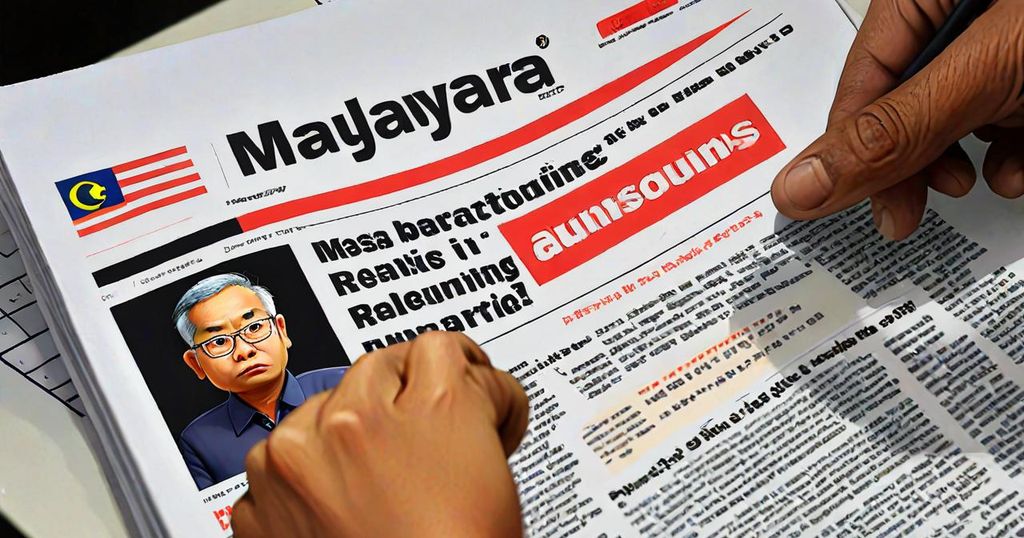A recent report entitled “People Power Under Attack 2023” illuminated the growing censorship in Malaysia under the leadership of Prime Minister Anwar Ibrahim. The report underscored the shrinking civil liberties in the country, as the closure of news portals and seizure of books contribute to an atmosphere of censorship.
The report categorized countries into five groups based on freedoms of association, peaceful assembly, and expression, revealing that Malaysia falls into the ‘obstructed’ category alongside Indonesia and Singapore. It also noted an increase in censorship under Anwar’s administration, despite his commitment to reform. Josef Benedict, the Asia-Pacific researcher for the Civicus Monitor, expressed concern over the negative trend in the region, stating that more governments suppressed citizens’ rights in 2023 than allowed free civic space.
The report specifically mentioned incidents such as the inaccessibility of the news portal MalaysiaNow to some users, leading to its subsequent blockage by certain internet service providers. Additionally, the government blocked access to another news site, UtusanTV.com, and the news website TV Pertiwi. MalaysiaNow had strong ties to the opposition Perikatan Nasional coalition, and TV Pertiwi had published critical reports about the government. The motivation for the blockage of UtusanTV remains unclear.
Furthermore, the report highlighted the use of restrictive laws by Anwar’s government to criminalize expression, including the raiding of bookstores and seizure of books critical of the government. This included several titles on Karl Marx and communism, a poetry book on masturbation, and other works. The administration also came under scrutiny for the controversial seizure of watches under the pretext of propagating same-sex relations, prompting a lawsuit from the Swiss company that manufactured the merchandise.
Despite Prime Minister Anwar’s prolonged political struggle for reform, the report revealed that his government continued to enact repressive measures and restrictive laws. Anwar cautioned against implementing reforms too hastily, emphasizing the importance of considering public sentiment and the potential negative impact of rapid changes. He cited the rush to ratify internationally binding treaties by his predecessor’s administration in 2018 as a “disaster” due to the lack of public explanation and consultation with key stakeholders.
Anwar’s approach to reforms has sparked concerns among critics who fear that it may undermine the credibility of his reform agenda as mere political rhetoric. However, in a recent interview, the prime minister emphasized that his priority was to focus on strengthening the Malaysian economy, particularly for the country’s farmers, fishermen, and working class.
As the issue of censorship and the implementation of reforms continues to be a point of contention in Malaysia, it remains to be seen how the government will navigate these challenges and uphold the rights of its citizens while pursuing its reform agenda.

Leave a Reply